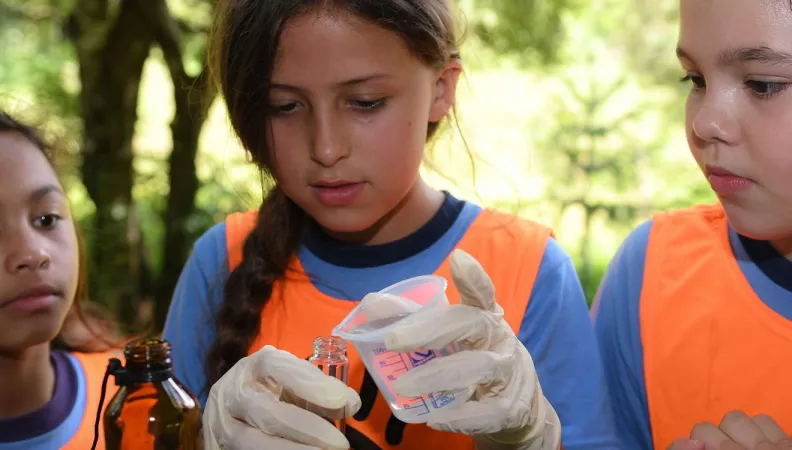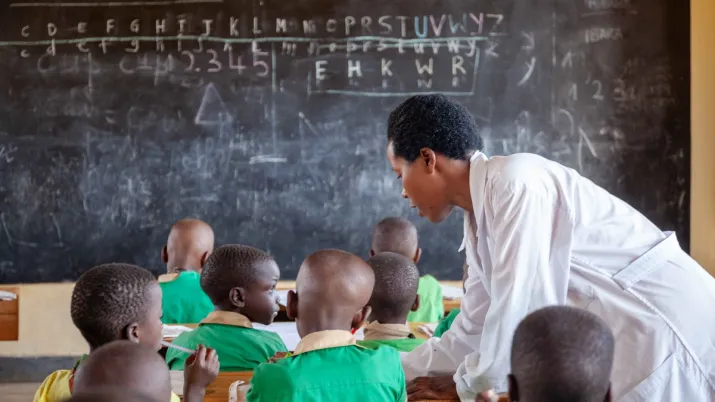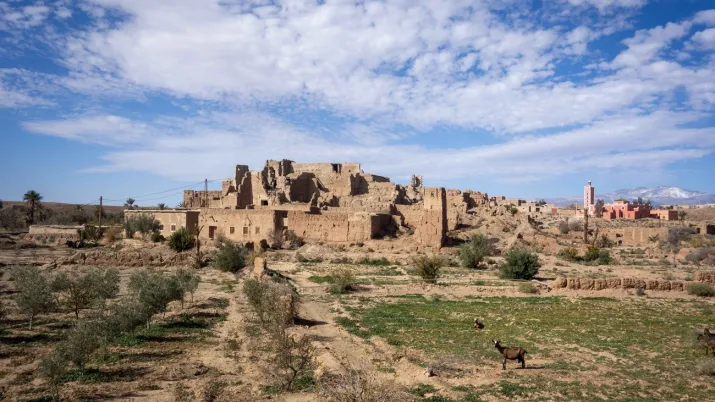Share the page
Is climate change education effective? Two AFD-supported studies provide answers
Published on

Can education about climate change truly influence behavior and help tackle environmental challenges? Two recent studies financed by AFD explore this essential question, aiming to identify the most effective practices and shed light on the cultural and cognitive barriers to adopting sustainable behaviors.
Shifting how younger generations respond to climate challenges is crucial for mitigating climate disruption. But there is still a long way to go. In 2024, nearly 250 million students had their education disrupted by extreme weather events – heatwaves, cyclones, storms, floods or droughts – according to UNICEF. Yet half of all school curricula still make no mention of climate change.
To fill this gap and help students understand and confront the consequences of the climate crisis, teachers and researchers around the world are leading climate change education sessions. The goal is to equip students with the knowledge, skills, values and attitudes they need to become agents of change.
A wide range of teaching methods are being tested: some use intergenerational dialogue, visual arts or games, while others focus on specific topics, such as the spread of misinformation – often faster than factual information. Still, despite a growing number of initiatives and studies, the effects of climate change education remained poorly understood.
Two studies to measure the impact of climate change education
In 2023, Agence Française de Développement (AFD) launched a call for research proposals to assess the effectiveness of climate change education initiatives. “We believed it was both useful and important to take stock of existing knowledge through systematic literature reviews. We selected two projects that offered complementary approaches,” explains Linda Zanfini, research officer at AFD, who coordinated both projects. Their findings were presented during a webinar in April 2025.
The first study, led by a team at the University of Rosario in Colombia, analyzed 146 scientific articles covering nearly 30,000 students aged five to 19. It assessed the impact of climate education on students’ knowledge, attitudes and behaviors. The second study, led by the Groupe d’analyse et de théorie économique Lyon–Saint-Étienne and the Pontificia Universidad Javeriana, also in Colombia, reviewed 19 studies involving children as young as three up to young adults aged 24. It examined how such educational interventions influence behavior and social norms.
The findings are clear. “Yes, climate change education positively affects students’ knowledge, emotions, awareness, habits and willingness to act—this is shown in most scientific studies,” says Benjamin Quesada, associate professor and head of the Earth sciences and systems department at the University of Rosario. “Concrete effects have been observed, including better waste management, lower energy consumption and stronger respect for nature,” confirms Lisa Salvetti, a doctoral candidate at the Center for Environmental Economics in Montpellier.
Applying theory to daily life works best
Examples rooted in students’ everyday lives prove particularly effective at drawing attention and encouraging action. The same is true for outdoor field trips, which increase students’ likelihood of adopting climate- and biodiversity-friendly behaviors. Conversely, overly competitive activities or alarmist messaging tend to undermine these positive impacts.
“Students need something they can relate to. They respond well when people affected by climate change share their stories,” says Simon Klein, science mediator at the Office for Climate Education. “Beyond the quality of resources or guest speakers, teachers’ own values play a key role: their engagement helps reduce students’ eco-anxiety and supports action. This is why we believe training as many teachers as possible in climate education is essential.”
Starting in early childhood
What is the right age to begin? “As early as possible!” says Benjamin Quesada. “Even without directly naming climate change, it is possible to introduce concepts like the environment, biodiversity and pollution through games and stories that build an emotional connection to nature. These foundations can be deepened later, by exploring the causes and impacts of climate disruption.”
Still, researchers involved in the studies note several limitations. “Most of the initiatives analyzed took place in urban, high-income settings, and lacked control groups. This makes it hard to draw universal conclusions,” says Lisa Salvetti. “Very few studies explored long-term behavioral changes,” adds Quesada. In short, the field of climate change education research is just beginning.



